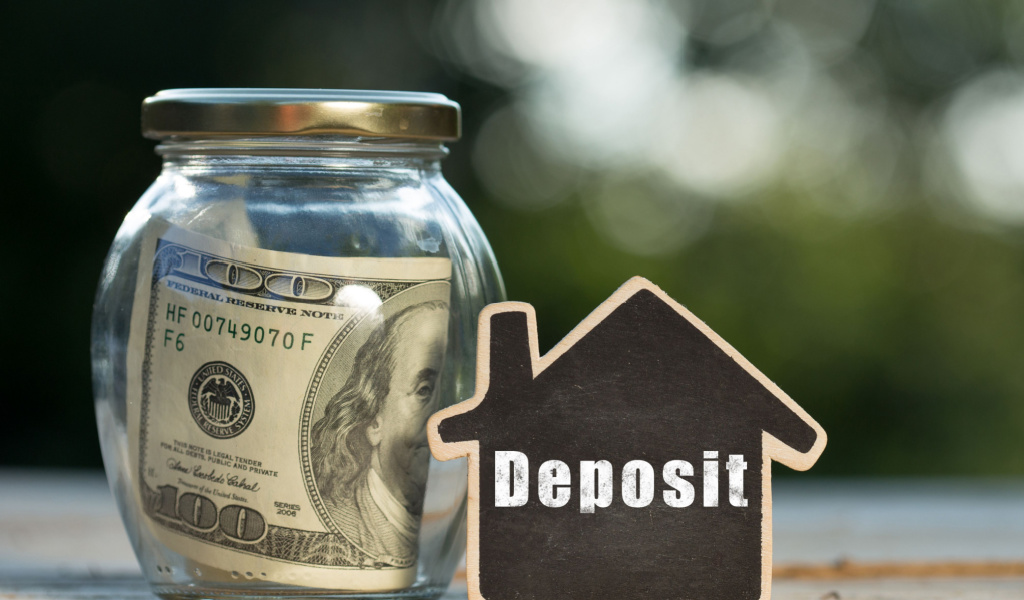A security deposit is a payment of money to a landowner or property management firm before a tenant moves into an apartment or home. This cash is used to pay for potential rental damages or lost properties. If you have unforeseen expenses or a temporary loss of employment, you may also be able to make up a missed rent payment, preventing you from being evicted.

Depending on the specifics of the transaction, security deposits may or may not be refundable. In the event of losses or lost property, security deposits act as a concrete security measure or as an intangible measure of security.
This article analyzes everything about security deposits, keep reading to discover more.
The Purpose of a Security Deposit
The security deposit is sort of a financial safety blanket for property owners when they are renting it out. The landlord may utilize the security deposit for repairs, for instance, if a tenant smashes a window or permanently harms the property’s flooring, walls, or infrastructure. Simply put, any object in a rental unit that was broken, misplaced, or stolen by the tenant can be fixed or replaced using the security deposit as well. Usually, if the rental is in good shape and doesn’t require repairs when the tenant vacates, the security deposit will be returned to them.
State rules govern how security deposits are applied once needed, and normally, security deposits must be paid before moving in. The location of a security deposit, such as in a separate bank account or an escrow account, and whether it is required to earn interest are subject to different state legislation.
Criteria For a Security Deposit
Typically, a security deposit is equal to one month’s worth of rent, although it can also be more. The security deposit placed in escrow may not be enough if the rental price of a property rises.
Local laws frequently treat security deposits as trust funds, even though security deposits are not regarded as taxable income. Final rent payments made with security deposits must be claimed as advance rent and are taxed at the time of payment.
While they are being retained, security deposits may earn interest, but that interest may not keep up with the rate of rent increases. After that, the tenant would have to increase the security deposit that is being retained.
Things Covered by a Security Deposit
At the end of the tenancy agreement, the tenant usually owes the homeowner or property manager any outstanding debts, including unpaid rent, fees, and utility bills. Unpaid physical damages may also be covered by security deposits. A closer look at what a security deposit can cover is provided below:

Property Damage
A landlord is allowed to deduct expenses for damages that go above and beyond regular wear and tear. But what constitutes “damage” should be specified in your agreement. According to some state legislation, landlords may even refuse to pay for minor damage such as a nail hole.
Unpaid Utilities
In several places, landlords can deduct overdue utility bills like EB and water bills from security deposits. Certain utilities can only be covered by security deposits in some states. Always double-check your local and state laws.
Makeover Charges for Leaving a Dirty Apartment
The majority of leases have some statement describing the state that the renter is required to leave the apartment when they vacate. For instance, tenants could need the apartment to be cleaned and painted neat by a professional. The landlord or property management firm has the right to impose a cleaning/painting fee if the flat is not properly cleaned.
Pet Deposit
You probably paid a pet deposit or rent if you moved in with a cat or dog. Or else, your landlord may take money out of your security deposit for pet-related damages or extra cleaning costs.
Taxes
Landlords have the right to request that their tenants pay property taxes in jurisdictions like Massachusetts. The landlord may take money from the security deposit to cover outstanding taxes if the renter doesn’t pay.
Special Emphasis on Deciding the Amount of Security Deposit
The amount of the security deposit may be argued in certain cities or localities. There may be landlords in some locations who charge more for security deposits than those in the neighborhood. In such locations, the amount of a security deposit is unaffordable. This may prohibit families and individuals with lesser incomes from finding housing in those locations. A security deposit that exceeds the amount of rent paid for a property may be banned by local regulation.



